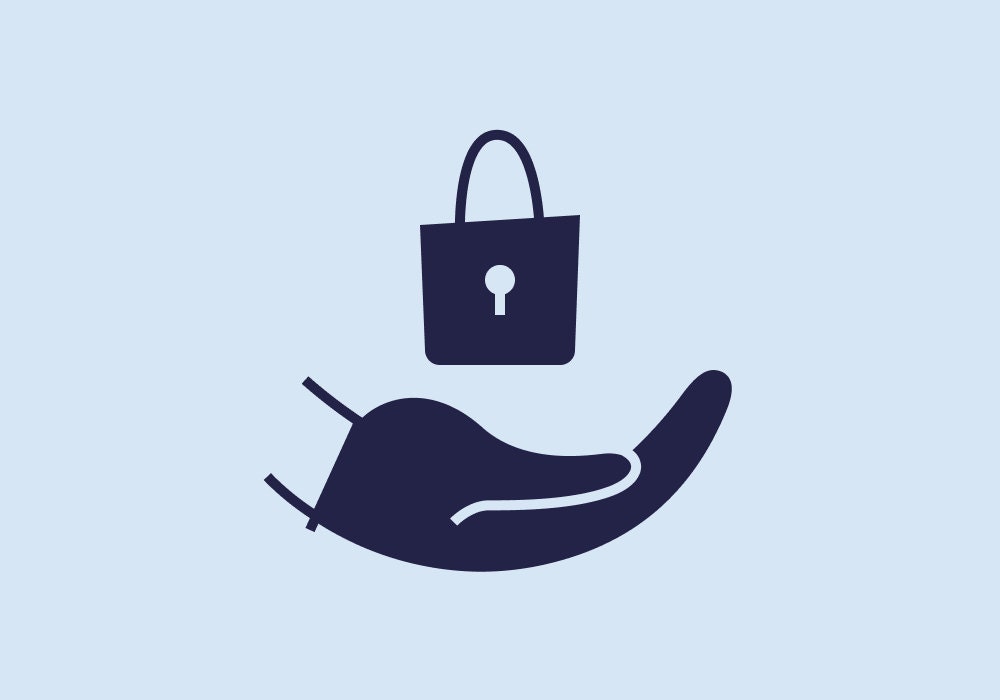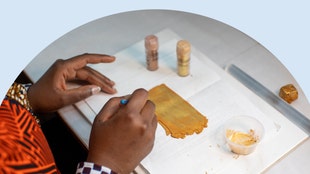Friendly disclaimer: If you list products for sale on Etsy, you must comply with all federal, state, and local legal requirements and Etsy policies applicable to those products and product listings. This article provides a general overview of intellectual property for informational purposes only, is subject to change over time, and is not legal advice. It is not intended to create, and receipt of it does not constitute, a lawyer-client relationship. The authors, Etsy, Inc. and Etsy Ireland UC, disclaim all responsibility for any and all losses, damages, or causes of action that may arise or be connected with the use of or reliance on these materials. Please consult an attorney or legal expert if you have any questions.
Before Amy Ng became an educator, teaching artists about creativity and entrepreneurship, the Malaysia-based seller and founder of Pikaland spent a lot of time researching other illustrators who successfully balance art and business. Based on her findings, Amy has written zines and blog articles on topics affecting artists, including personal style development, time management and other “prickly issues” like jealousy, plagiarism and copycats.
The first time Amy came across a copycat of her work, she was upset. “It actually made me angry at first,” she says. “I felt that I did all the hard work and other people basically grabbed everything I had done and ran with it.” When you’ve poured your heart into a creation, painstakingly written a description and carefully edited listing photographs, seeing similar or identical content can be upsetting. If you see what you think is a “copycat” on Etsy, what can you do?
Researching your options
If this has happened to you, it’s understandable to feel distressed. However, it’s also essential to research your rights and know what resources are available. The world of intellectual property can be murky and confusing. What you may consider “copying” potentially covers a wide range of activity that may or may not be infringement. For example, someone creating an item that looks a bit like yours is different from someone using your trademarked name in a misleading way or posting a photograph you took without your permission.
In the US, copyright protects original works, such as artistic, literary and musical creations, and protection begins when the work is created. Registration is not required, although in the US, registration does have certain benefits when it comes to enforcing your copyright. That said, not everything is copyrightable. A particular expression of an idea is copyrightable, but the idea itself is generally not.
According to the US Copyright Office, the following typically are not protected by copyright: titles, names, short phrases, slogans, familiar symbols or designs, ideas, procedures, methods or processes. Learn more about what is and isn’t protected by copyright here.
Trademarks, on the other hand, generally refer to words or symbols that identify and distinguish the source of goods, such as a brand logo. Although registration isn’t always necessary in the US for you to have protectable trademark rights, unregistered rights must be established through factors like actual use in commerce. Not every trademark can be registered or protected in the first place. For instance, if it is too confusingly similar to existing trademarks, is a descriptive or generic term, or is used in only a decorative way, it may not be protected.
If you're selling fan art, parodies, upcycled or renovated items, or customized items, specific rules like the Fair Use doctrine or the First Sale doctrine may be relevant. Similarly in the UK, the concept of Fair Dealing can cover some exceptions to copyright law.
Intellectual property legal topics are complex and rules vary across the world. If you are concerned about whether your items may be violating intellectual property policies, or whether others are improperly using your creations, you may wish to speak with a legal professional in your area for advice tailored to your specific business.
This is only scratching the surface of the complexities of intellectual property. Researching the law and speaking to an attorney about your options can help you figure out the best course of action to take in your situation. Although there are many options available, Etsy can’t provide legal advice on what you should do or assist you with filing legal action.
However, if you believe content on Etsy infringes on your intellectual property rights, the following two options are available to you on Etsy:
1. Reaching out
Sometimes resolving an issue with potential copying can be as easy as sending them a message and bringing up your concerns. It’s possible the person wasn’t aware of the problem, or they may have just come up with something similar independently.
2. Filing a report
We’re committed to supporting our sellers and removing listings that violate your rights and don't meet our policies. That’s why we’ve created our new Etsy Reporting Portal. If you decide to file a notice of infringement, the portal makes it easy to get started: You can register your brand and create a report in five easy steps.
Here’s an overview of the process:
-
Using your Etsy account, you can register your brand, then view all of your intellectual property rights and reports in one place.
-
Use keywords related to your brand to search millions of listings, then browse, compile, and report any suspected infringing listings to our dedicated team.
- Once reported, our Trust & Safety Team jumps into action to investigate. If a listing is removed, the seller is notified.
Note: In accordance with our Intellectual Property Policy, Etsy only accepts reports from the intellectual property owner or someone authorized by the owner. Since improper reports without sufficient information will be rejected, speak with an attorney if you aren’t sure about your rights. Abuse of our reporting system or knowingly filing false claims violates not just Etsy policies but may also violate applicable law.
You can learn more about what happens after reporting suspected infringement in the Help Center. Are you an Etsy seller with a reported listing? Here’s what to do next.
Return to the Ultimate Guide to Intellectual Property
 Words by Etsy Staff
Words by Etsy Staff




